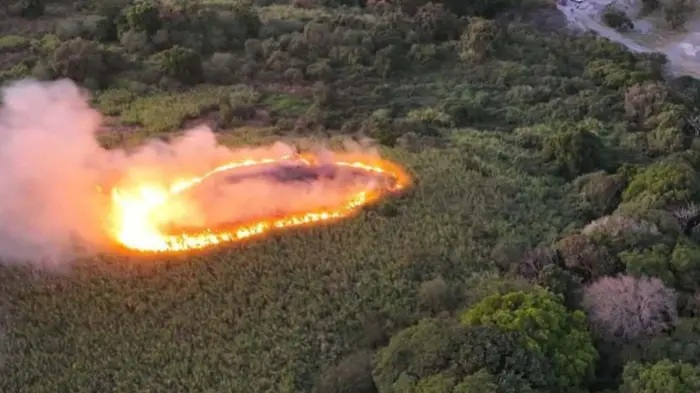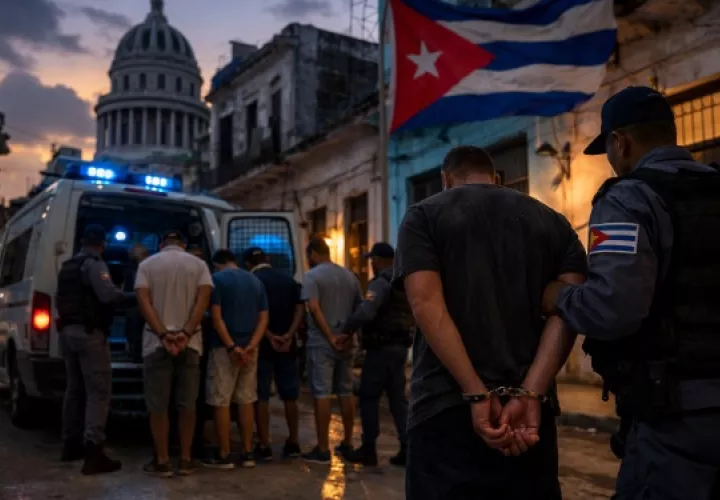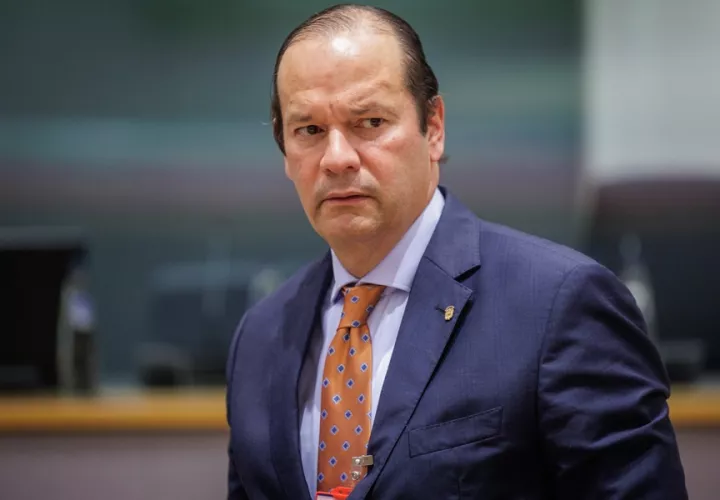WORLD VIEW: Unconventional disaster relief actors

By Caroline Brassard
THE INCREASING importance of private businesses, charities and faith-based organizations in responding to humanitarian and environmental crises is impacting the entire humanitarian system.

As such, there are necessary institutional considerations to ensure an ethical and efficient response to disaster relief and accountability to the survivors of humanitarian and natural disasters.
The term “non-traditional actor” in a post-disaster context is often associated with private aid, businesses, diaspora networks and faith-based organizations.
But this is no longer appropriate. Despite the lack of media attention, these players constitute an integral part of the responses to disasters. There is a widening spectrum of organizations and groups, each requiring their own relevant and clear code of conduct and accountability.
No Longer “Non-Traditional”
There are at least three reasons why the term “non-traditional actor” should no longer be applied to businesses, private aid and faith-based organizations involved in disaster response: network, technology and resources.
First some institutions have been responding to humanitarian needs and post-disaster reconstruction in significant ways for many decades already.
This is due to their local presence, large networks (personal and professional), and high level of trust by affected communities.
The Islamic Cultural Association, Muhammadiah, in Indonesia, for example, has been providing support to disaster victims of all faiths and has set up a disaster management center to educate the community about disaster risk, prevention and reconstruction
Second, private firms involved in communication technology, insurance and logistics have often worked with countries at risk of climate-related and environmental disasters, not just in coordinating relief but also in setting up adequate preparedness measures to face disasters.
In addition to global companies such as UPS, FedEx and DHL, NGOs are increasingly working with smaller local logistics companies that often provide pro bono support to local groups affected by disasters, such as during the 2013 Typhoon Haiyan in the Philippines.
Third, the sheer size of financial resources coming from private aid and philanthropy from the affected country as well as the international community (including notably diaspora groups) is extremely significant. As Homi Kharas from Brookings Institute pointed out in 2012, the scope for philanthropic giving via mobile phone transfer has yet to be fully tapped into, but has the advantage of being demand-driven, targeted, and transparent all at very low overhead costs.
So why are these actors still labelled ‘non-traditional’?
One reason is because they challenge ‘traditional’ ways of co-ordinating humanitarian efforts following a disaster.
Businesses, charities and faith-based organizations are pushing boundaries and helping identify missing methods or procedures of engaging in disaster response.
While this collaboration is surely welcomed by governments and international agencies, what is at stake is to ensure that disaster victims are engaged and empowered in their recovery and reconstruction. Moreover, any support needs to be provided within the principles of humanitarian assistance – with full respect for individual and group human rights.
Emerging Actors
There is a wide range of new or emerging actors in the humanitarian field.
At one extreme are the self-appointed and ill-prepared maverick individuals and organizations offering help but often putting their lives and the lives of others in danger.
The unintentional consequences of poor preparation, weak understanding of local conditions, or lack of attention to safety can be both harmful and burdensome to affected communities.
Ultimately, these individuals and groups can create false expectations, leading to the disillusionment of already traumatized communities.
At the other end are the organizations bringing a complementary range of specialized skills and innovative technology such as ‘mobile relief’ that can help facilitate co-ordination, introduce new technologies, and reach isolated communities more quickly, as seen after the April 2015 Nepal earthquake.
Here, The Vodafone Foundation – the U.K. telecom giant’s charitable arm, deployed an Instant Network Mini in the form of an 11 kilogram backpack which provided one kilometer of Wi-Fi coverage for up to six hours, connecting rescue workers and victims
This demonstrates the fast, immediate and impactful effect non-traditional interventions and resources can facilitate in the disaster relief process.
These new kinds of resources moving into the humanitarian sector have led to the creation of entirely new departments in the private sector.
Local and international businesses and charities are increasingly building up their ability to respond to a variety of disasters. Such a buildup emphasizes the need for clear operating standards, guidelines and information sharing.
Unconventional Partnerships
Support for unconventional partnerships requires an open community that enables better access not just to information on best practices but also on lesser-known areas such as the role of customary law and existing local community networks.
PreventionWeb plays an important role in the disaster reduction community by providing information at the country level, but such platforms rarely exist at the community level.
Sustainable and effective recovery requires letting the affected communities drive and dictate their own needs.
This challenge prompted the inaugural World Humanitarian Summit in May 2016, which led to a renewed agenda to support the world’s 130 million most vulnerable people, including the establishment of the Education Cannot Wait fund, a fund for Education in Emergencies and the initiative Connecting Business, which was launched in order to better connect and incorporate private businesses with disaster relief initiatives.
Players in unconventional partnerships, like private businesses and local governments, must begin developing their own code of conduct and operational procedures, but they cannot do so alone.
Traditional actors, including international NGOs and state actors, share an ongoing responsibility to help foster deeper ties with non-traditional actors who might bring added value following a disaster.
With deepening engagement between traditional and non-traditional actors comes a new chapter in disaster relief.
The amazing potential for unconventional partnerships to empower victims of disasters, encourage more inclusive resolutions to conflict, and respect human rights through transparent and accountable actions depends on this nascent union of old and new.
Caroline Brassard holds a PhD in Economics from the University of London. and is adjunct assistant professor at the Lee Kuan Yew School of Public Policy (LKY SPP), at the National University of Singapore, She has extensive fieldwork experience in Vietnam, Indonesia, Bhutan, Nepal and Bangladesh.





